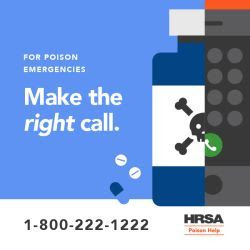
HHS Awards $117 Million to End the HIV Epidemic in the United States

February 26 – Today, the U.S. Department of Health and Human Services (HHS), through the Health Resources and Services Administration (HRSA), awarded approximately $117 million to expand access to HIV care, treatment, medication, and prevention services. This investment is a critical component of the Administration's Ending the HIV Epidemic: A Plan for America (EHE) initiative, which aims to reduce the number of new HIV infections in the United States by 90 percent by 2030.
The EHE initiative and today's awards focus on 48 counties, Washington, D.C., and San Juan, Puerto Rico, geographic areas where more than 50 percent of new HIV diagnoses occurred in 2016 and 2017, as well as the seven states with a substantial rural HIV burden.
HHS Appoints Former Kansas Governor Jeff Colyer Chair of the National Advisory Committee on Rural Health and Human Services

February 27 – Today, HHS Secretary Alex Azar announced the appointment of former Kansas Governor Jeff Colyer, to serve as Chair of the National Advisory Committee on Rural Health and Human Services (NACRHHS).
Colyer, a surgeon by training, will be the fifth chair in the 32-year history of the Committee and the second chair from Kansas after Nancy Kassebaum Baker, who served during the Bush Administration. Colyer’s appointment coincides with a series of actions the Secretary has taken to bring more attention to rural health.
|
HRSA’s Pedley Promoted to Admiral

RADM Krista Pedley will mark her 20th anniversary with the U.S. Public Health Service this May, having risen into an elite group of officers encompassing fewer than one percent of the the 6,500-strong Commissioned Corps. The flag rank of Rear Admiral ratifies Pedley as command-ready and suited to lead PHS officers on all missions, foreign and domestic.
Nominated last August, she was notified of her promotion in December by the U.S. Surgeon General.
"She is an excellent leader," HRSA Administrator Tom Engels told a sometimes emotional audience of Pedley's family, friends and colleagues on Friday. "As her promotion here today makes clear to everyone, she is an outstanding Commissioned Corps Officer. Congratulations, Krista, you make HRSA proud."
|
National Poison Prevention Week is March 15-21

National Poison Prevention Week raises awareness of poison prevention nationwide during the third full week of March every year.
The week is an opportunity to highlight the dangers of poisons and promote community involvement in poisoning prevention.
|
Webcast: Aging Adults with HIV
HRSA’s HIV/AIDS Bureau (HAB) will host the first in a series of two national webcasts Thursday, March 26, from 1:30-3:00 p.m. ET. The webcast, “Healthcare Needs of Adults with HIV who are Aging in the Ryan White HIV/AIDS Program (RWHAP),” will focus on addressing the medical care and support needs of adults with HIV who are aging in RWHAP.
This first webinar will feature the perspectives of subject matter experts on clinical needs (e.g., geriatric syndromes and comorbidities) as well as provider training needs and resources available, and discuss the value of prioritizing key care components. An aging adult with HIV who has experienced the nuisances of navigating healthcare systems will also share their personal story. All RWHAP providers are requested to participate, and RWHAP stakeholders and people with HIV are invited to take part in this event.
|
HRSA Launches Clinician Dashboards

The Clinician Dashboards display alumni data from the HRSA Bureau of Health Workforce's (BHW) scholarship, loan repayment, and graduate medical education programs. With these dashboards, users can analyze the distribution of BHW programs and participants from 2012 to 2018.
For example, users can find out a BHW supported clinician is practicing in a rural community nearby. Check out the new dashboards at data.HRSA.gov to see how BHW programs are connecting skilled professionals to communities in need.
|
New National Survey Reveals Organ Donation Attitudes and Behaviors in the U.S.

This week, HRSA's Healthcare Systems Bureau released the 2019 National Survey of Organ Donation Attitudes and Practices Report, a nationally representative survey conducted to understand public opinion about organ donation and transplantation, and how those opinions have shifted over time. The report provides detailed information about the levels of support for organ donation, popular beliefs, family member discussions about organ donation, and more.
Read the report (PDF - 3 MB) and watch the recorded webinar.
Visit our website for more information about the 2019 National Survey of Organ Donation Attitudes and Practices.
|
ASTHOConnects Webinar: Engaging Primary Care Associations and Federally Qualified Health Centers

The Association of State and Territorial Health Officials (ASTHO) hosted a webinar highlighting the role of primary care providers, Federally Qualified Health Centers (FQHCs) and Primary Care Associations (PCAs) in delivering integrated behavioral health services for pregnant/postpartum women and infants experiencing substance use disorder. As part of ASTHO’s virtual learning series for public health leaders, the webinar highlighted the work of the Opioid Use Opioid Use Disorder, Maternal Outcomes, and Neonatal Abstinence Syndrome Initiative (OMNI) Learning Community.
Dr. Sue Lin from the HRSA Bureau of Primary Health Care provided the federal perspective on engaging primary care associations and leveraging FQHCs for OMNI related work. The webinar also featured two FQHCs that provide services to pregnant and postpartum women affected by opioid use disorder and infants prenatally expose to substances. This work is supported through HRSA's cooperative agreement with the National Organizations of State and Local Officials.
|
Community Health Workers: Evidence of Their Effectiveness

The Association of State and Territorial Health Officials and the National Association of Community Health Workers recently published a summary of the research examining community health workers over the past fifty years. This research has focused on assessing their effectiveness in improving health outcomes, reducing healthcare costs, and bridging the gap in health disparities. This work is supported through HRSA’s cooperative agreement with the National Organizations of State and Local Officials.
Read the summary (PDF - 281 KB).
|























.png)












No hay comentarios:
Publicar un comentario